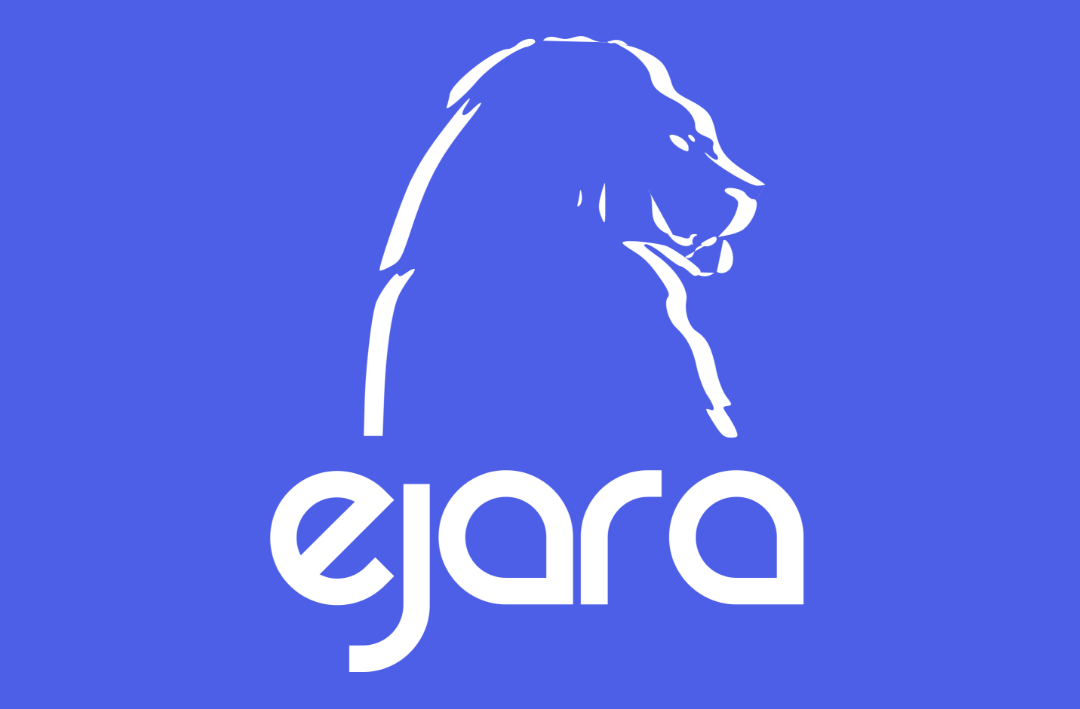Ejara, headquartered in Cameroon, has raised $2 million to offer crypto and investment services in Francophone Africa.
In Africa, there are geographical differences in cryptocurrency adoption. While countries with currently unstable currencies, such as the naira, see a lot of use, the CFA franc is only used sparingly in other parts of the globe.
Francophone Africa is one of Africa's most crypto-friendly economies, with over 200 million people utilising the CFA franc as their currency. However, only a few businesses are capitalising on the industry, which has the potential to become Africa's next big thing for mobile money and investing apps.
To that purpose, Nelly Chatue-one-year-old Diop's startup, Ejara, has raised $2 million to pioneer the use of cryptocurrency and investing services in the region.
The financing was headed by CoinShares Ventures and Anthemis Group. Mercy Corps Ventures, Lateral Capital, LoftyInc Capital, and NetX Fund have joined them. A syndicate social fund and two angel investors — Pascal Gauthier of Ledger and Jason Yanowitz of Blockworks — also took part.
Founder and CEO Chatue-Diop had a nudge to return to Francophone Africa to start a firm while studying and afterwards holding a couple of top executive posts in Europe over the course of ten years. That nudge was the result of a combination of past occurrences and current opportunities.
When France devalued the CFA franc in 1994, Chatue-family Diop's in Douala, Cameroon, went through a life-changing experience. This, she claims, has sent her family (and millions of others) into financial ruin.
"I was quite young, and my family belonged to the middle class. "All of our funds vanished overnight, and the government couldn't even pay salaries," she told TechCrunch over the phone. "Even at that young age, I wondered how we could do everything perfectly and still end up in that zone." As a result, it lingered in my thoughts."
She first learned about blockchain in 2015 and thought it was the ideal solution to solve the challenges she had as a child. "It taught me that people can reclaim full control over their assets and income, as well as protect and increase their wealth," she said.
As a result, she teamed up with Baptiste Andrieux, a long-time friend and serial entrepreneur, to launch Ejara in Cameroon and the greater Francophone region.
Cryptocurrencies are typically reserved for a select elites in Francophone Africa who desire to diversify their investments. Ejara intends to level the playing field for the typical Francophone African by allowing them to contribute as little as 5,000 CFA ($9).
"The inherent transparency and security of the blockchain, together with Africa's widespread usage of mobile banking, convinced me that a blockchain-based mobile investing platform was the key to promoting financial inclusion," said the CEO. "However, I had the impression that few of these crypto companies were connecting with Francophone Africans like myself, despite the fact that they were growing up everywhere."
She claims that bitcoin was the best choice for a launch because of what it signifies in terms of complete ownership over one's assets. When talking about cryptocurrencies in general, one of the most common topics that comes up is which wallets to use for storing private keys.
Third-party companies hold private keys in custodial wallets, whereas non-custodial wallets allow users to own and maintain their keys. And, while there is a lot of talk about control in the crypto world, custodial wallets, which are available on most crypto platforms in Africa, don't provide users that much power.
Ejara stated that security, privacy, and ownership are important to it, which is why it is providing non-custodial wallets to its users so they may safely buy, sell, trade, and store their crypto investments.
However, the company intends to diversify its offerings to include fractional shares, stocks, and commodities.
Ejara has over 8,000 users from Cameroon, the Ivory Coast, Burkina Faso, Mali, Guinea, and Senegal, in addition to French-speaking Africans in the diaspora (Europe, Asia, and the United States), and caters to them through a partnership with crypto payment infrastructure company MoonPay, allowing them to send money to friends and family in Africa. All of this was accomplished with little marketing money, according to the CEO.
When it comes to users, Chatue-Diop divides them into two groups: those who buy crypto to save for the future and those who make frequent transactions.
"Most people in Africa don't have a retirement fund, so some clients use Ejara to supplement their income." Some users, particularly mothers, use the platform to invest in their children's college tuition. Then there's a small group of customers who are wholesalers and do a lot of business; they use cryptocurrency to finance and buy items from international vendors."
Ejara will use the seed funding to focus on growth, the deployment of items on the company's roadmap, and the expansion of the product and engineering teams.
CoinShares' Meltem Demirors discussed the possibility in Francophone Africa as well as the lack of finance in the region. Despite the fact that Francophone Africa accounts for around 25% of the continent's population, she claims that the region's businesses have received less than 1% of venture capital — but she sees Ejara's fundraising round as a ray of light, especially in a relatively untouched field like fintech.
"We're pleased to partner with Nelly and the Ejara team to give financial services via non-custodial wallets, which provides Francophone savers and investors with a new level of trust and transparency," Demirors added.
Anthemis was particular about how Ejara educates people in Francophone Africa about digital assets and democratises wealth creation prospects, according to Ruth Foxe Blader, partner at Anthemis.

